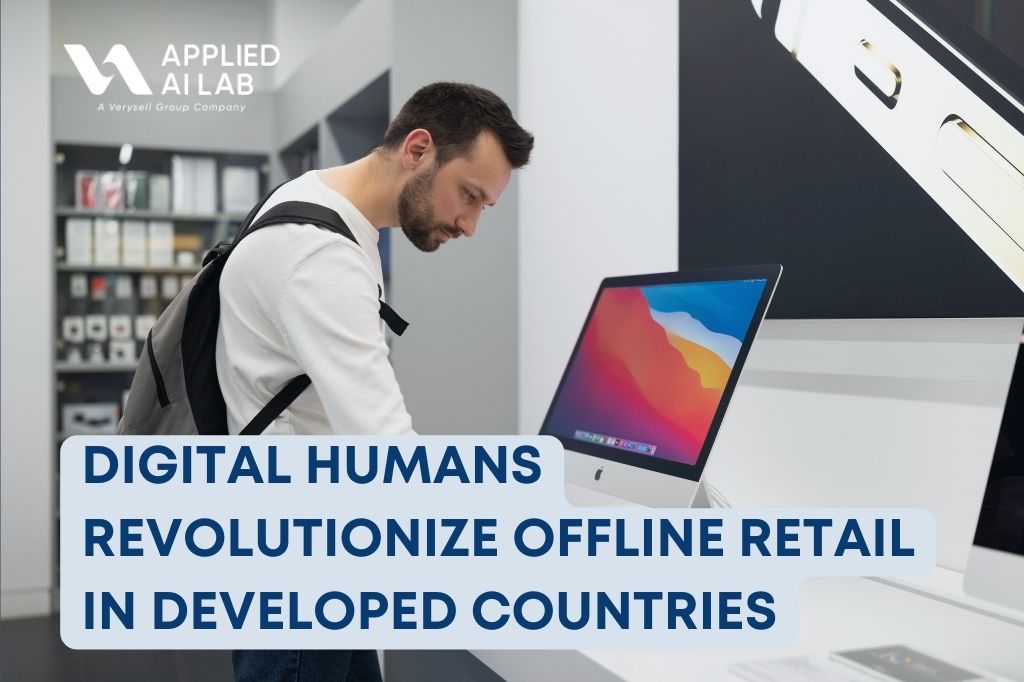
Business Challenges
The labor shortage crisis affecting numerous industries in developed countries, including the offline retail sector, presents significant challenges. Finding qualified and readily available staff for customer service roles can be arduous, impeding store operations and impacting customer experience. In response to this challenge, this case study examines how a cutting-edge application leveraging Digital Human technology addresses this problem by offering a highly customizable and engaging solution for offline shops.
AI Solution
We developed a user-friendly application featuring Digital Human technology. Users begin by uploading a portrait image of a desired individual, which could be a model, influencer, or virtual character. They then create scripts for the Digital Human to speak, covering greetings, product explanations, marketing campaigns, or other desired messages. Advanced algorithms analyze the portrait and script, generating realistic facial expressions, lip movements, and body language while speaking. The application offers customization options, allowing users to modify voice tone, background music, and animation style to achieve the desired brand image and personality. Additionally, the application supports various languages, enabling global deployment and reaching diverse customer segments.
Expected Outcome
The Digital Human application significantly improves the client’s operations and customer experience. Firstly, it provides a cost-effective solution by reducing labor costs associated with traditional customer service roles. Secondly, it ensures 24/7 availability, as the Digital Human can greet customers and answer questions continuously, eliminating wait times and ensuring consistent service. Thirdly, personalized interaction is enhanced by using the likeness of a known individual or creating a unique virtual character, fostering emotional connection and engagement with customers. Lastly, the application contributes to enhanced marketing and sales efforts by dynamically and engagingly presenting promotions and product information, effectively capturing customer attention and increasing sales conversions.
In summary, the implementation of Digital Human technology in offline retail settings revolutionizes customer service and engagement. By leveraging advanced AI-driven solutions, offline shops can overcome labor shortages, provide personalized and engaging interactions with customers, and ultimately enhance marketing and sales efforts. This innovation reshapes traditional retail processes, offering cost-effective solutions and ensuring consistent and engaging customer experiences, thus driving business growth and maintaining a competitive edge in the dynamic retail landscape.











